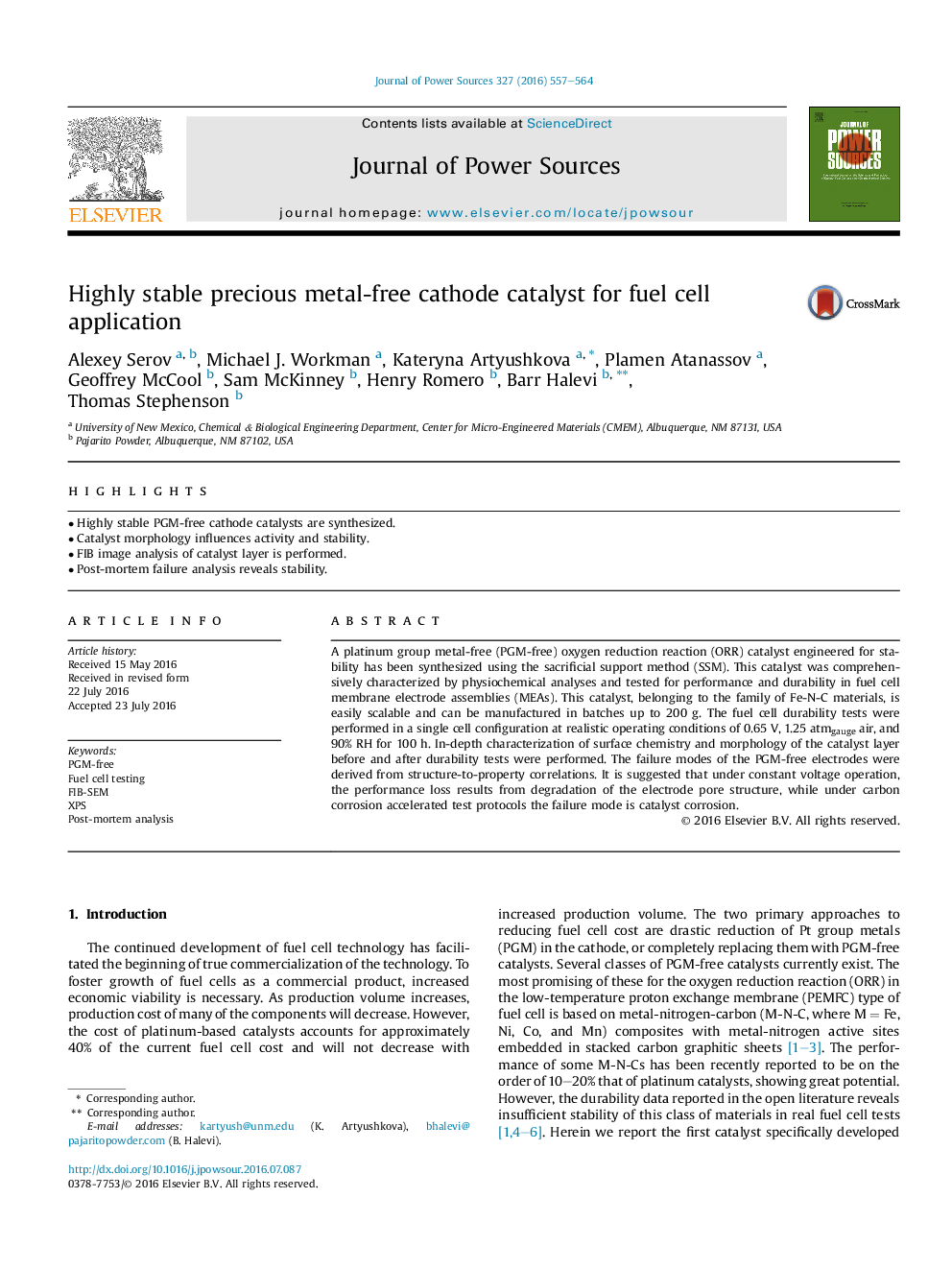| Article ID | Journal | Published Year | Pages | File Type |
|---|---|---|---|---|
| 7727291 | Journal of Power Sources | 2016 | 8 Pages |
Abstract
A platinum group metal-free (PGM-free) oxygen reduction reaction (ORR) catalyst engineered for stability has been synthesized using the sacrificial support method (SSM). This catalyst was comprehensively characterized by physiochemical analyses and tested for performance and durability in fuel cell membrane electrode assemblies (MEAs). This catalyst, belonging to the family of Fe-N-C materials, is easily scalable and can be manufactured in batches up to 200Â g. The fuel cell durability tests were performed in a single cell configuration at realistic operating conditions of 0.65Â V, 1.25 atmgauge air, and 90% RH for 100Â h. In-depth characterization of surface chemistry and morphology of the catalyst layer before and after durability tests were performed. The failure modes of the PGM-free electrodes were derived from structure-to-property correlations. It is suggested that under constant voltage operation, the performance loss results from degradation of the electrode pore structure, while under carbon corrosion accelerated test protocols the failure mode is catalyst corrosion.
Related Topics
Physical Sciences and Engineering
Chemistry
Electrochemistry
Authors
Alexey Serov, Michael J. Workman, Kateryna Artyushkova, Plamen Atanassov, Geoffrey McCool, Sam McKinney, Henry Romero, Barr Halevi, Thomas Stephenson,
